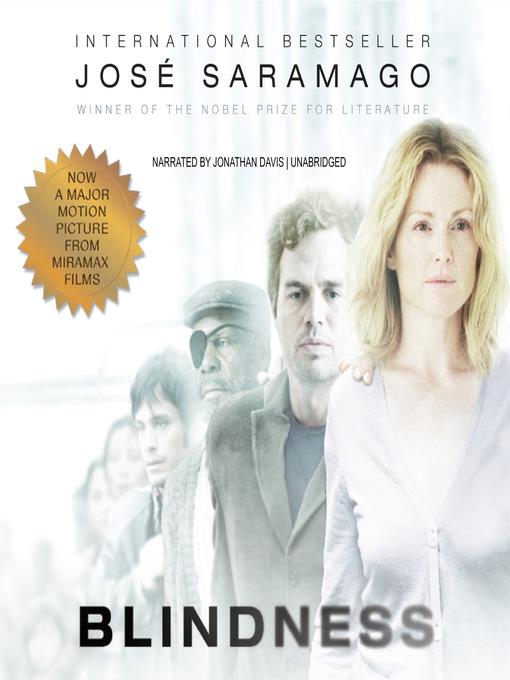
Blindness
فرمت کتاب
audiobook
تاریخ انتشار
2008
نویسنده
Barbara Ewingنویسنده
Tamara Aspelingنویسنده
Jonathan Davisشابک
9781602834453
کتاب های مرتبط
- اطلاعات
- نقد و بررسی
- دیدگاه کاربران
نقد و بررسی

Listeners who are easily depressed or those fearful that society is near collapse may want to hold off listening to this tale of blinded, quarantined citizens by the winner of the 2008 Nobel Prize for Literature. Jonathan Davis provides a dry, removed narration of this disturbing, challenging audiobook--an allegorical story best summed up in the words of its heroine: "If we cannot live entirely like human beings, at least let us do everything in our power not to live entirely like animals." Activists for the blind have protested Saramago's portrayal of the sightless--a particularly unfortunate turn for this audiobook, considering its excellent execution as well as the audiobook industry's original connection with the vision impaired. But BLINDNESS is all that one can expect from a Nobel winner--a "what if" premise (what if a city went blind?) that exposes the flaws and strengths of the human condition. R.W.S. (c) AudioFile 2008, Portland, Maine

November 24, 2008
Saramago's chilling thriller about an epidemic of “white blindness” that affects everyone in its path is a truly remarkable tale of loss and a metaphor for the horrors of humankind. With such a large and varying cast of characters including young children, a mother and an elderly man, narrator Jonathan Davis gives a truly rousing performance and displays his wide-ranging ability. Each character is original and believable in the face of this unbelievable epidemic. Davis's reading puts his audience in a bright white place, where little is visual save for the listeners' imaginations running wild. Davis's voice paints a vivid portrait. A Harcourt paperback (Reviews, July 13, 1998).

Starred review from August 31, 1998
Brilliant Portuguese fabulist Saramago (The History of the Siege of Lisbon) has never shied away from big game. His previous works have rewritten the history of Portugal, reimagined the life of Christ and remodeled a continent by cleaving the Iberian peninsula from Europe and setting it adrift. Here, Saramago stalks two of our oldest themes in the tale of a plague of blindness that strikes an unnamed European city. At the novel's opening, a driver sits in traffic, waiting for the light to change. By the time it does, his field of vision is white, a "milky sea." One by one, each person the man encounters--the not-so-good Samaritan who drives him home, the man's wife, the ophthalmologist, the patients waiting to see the ophthalmologist--is struck blind. Like any inexplicable contagion, this plague of "white sickness" sets off panic. The government interns the blind, as well as those exposed to them, in an abandoned mental hospital guarded by an army with orders to shoot any detainee who tries to escape. Like Camus, to whom he cannot help being compared, Saramago uses the social disintegration of people in extremis as a crucible in which to study the combustion of our vices and virtues. As order at the mental hospital breaks down and the contagion spreads, the depraved overpower the decent. When the hospital is consumed in flames, the fleeing internees find that everyone has gone blind. Sightless people rove in packs, scavenging for food, sleeping wherever they can. Throughout the narrative, one character remains sighted, the ophthalmologist's wife. Claiming to be blind so she may be interned with her husband, she eventually becomes the guide and protector for an improvised family. Indeed, she is the reader's guide and stand-in, the repository of human decency, the hero, if such an elaborate fable can have a hero. Even after so many factual accounts of mass cruelty, this most sophisticated fiction retains its peculiar power to move and persuade. Editor, Drenka Willen. (Sept.) FYI: Paperback editions of The History of the Siege of Lisbon and Baltasar and Blimunda will be issued simultaneously.

























دیدگاه کاربران